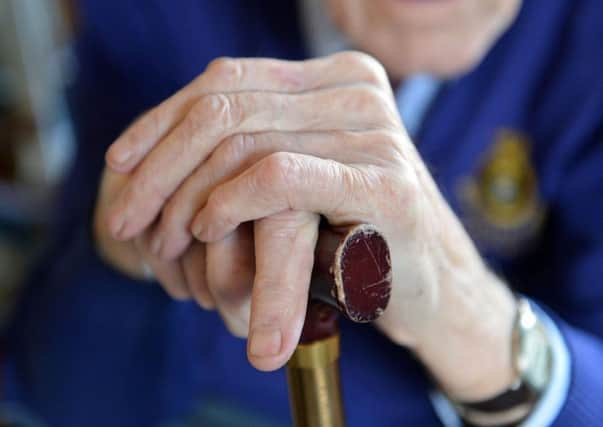Mike Padgham: Crisis in social care can't drift for another year '“ this is why


Important as that undoubtedly is – and will be for many, many months to come – it is appalling how that debate has dominated all else. Crime, education, health and the care of the youngest and oldest people in this country have all been pushed down the priority list.
Advertisement
Hide AdAdvertisement
Hide AdWhichever side of the Brexit debate you are on, that cannot be a healthy state of affairs for Britain as we head into 2019.


A buzz phrase for some time now has been “early intervention”: the need to enter a process early to prevent further damage or deterioration. You see it quoted in tackling offenders, in caring for young children and in the care of our oldest and most vulnerable adults.
The sad truth is that early intervention is just not happening in far too many cases and we are being left to deal with the consequences.
In adult social care, early intervention revolves around providing care to allow a person to retain some independence in their own home and keep them out of costly hospital beds.
Advertisement
Hide AdAdvertisement
Hide AdLast year, like the previous eight years, we saw a reduction in early intervention, and all social care, due to ongoing budget cuts – £7bn since 2010.
That means the amount of homecare has fallen, not least because providers cannot deliver the care in a viable and sustainable manner.
Homecare providers and care and nursing homes are struggling, with some going out of business.
Advertisement
Hide AdAdvertisement
Hide AdSome 1.4 million people are now not getting the care they need, a number that is rising every single day.
We were promised a Green Paper which was due to set out a future plan for the sustainable funding of social care. But that has been put back at least four times, and we have no idea when – or even if – we will ever see it. And we know that the Green Paper will be just the start of a consultation process and it will be months, if not years, before we see any real change.
In the meantime, more and more people will be left without care. Care providers need to see action now, as they are struggling to cover shifts and provide care today and tomorrow, not next month or next year.
For 2019, we have to see this Green Paper very quickly and with it some emergency measures to start tackling the crisis that social care now finds itself in.
Advertisement
Hide AdAdvertisement
Hide AdWe need a root and branch overhaul of the way social care is planned and funded, merging it with NHS healthcare and finding a way to fund it properly, even if that does mean through taxation and/or NI contributions.
We need to support care providers and stimulate investment in care provision. A good way to start that would be to make care zero-rated for VAT, freeing up at least some money to invest in the future. It would also be useful to relieve them of some of their burdens, like duplication of inspection, for example.
And we need to support the staff that deliver the care. We have to find a way to improve the status of care staff, so that it becomes a career people want to take up. They deserve proper reward for the hard work they do, not just pay that enables them to live. A good place to start would be creating a minimum wage for care staff, above the National Minimum Wage, and the creation of a state registration scheme, as we have for nurses.
Dementia needs to be treated as a health issue, so that those with the condition get the same treatment and care as those with cancer and heart disease.
Advertisement
Hide AdAdvertisement
Hide AdPeople needing care need to know what it is going to cost, so there has to be a cap on social care costs, including “hotel” charges.
Maybe we need to create a whole new model for delivering care, perhaps based on catchment areas, as we have for GPs.
And we need to ensure the Care Quality Commission (CQC) has greater power to oversee commissioning to ensure that people are getting the care they need. We also need to look at how it operates for all providers to ensure a level playing field and for the Government to be more realistic in its full-cost recovery diktat.
This is my wish list for social care in 2019. Will any of it happen? We will have to wait and see. Let’s see real change in social care in 2019 and not another year of drift. Then we can all have a happy New Year!
Mike Padgham is Chair of the Scarborough-based Independent Care Group.